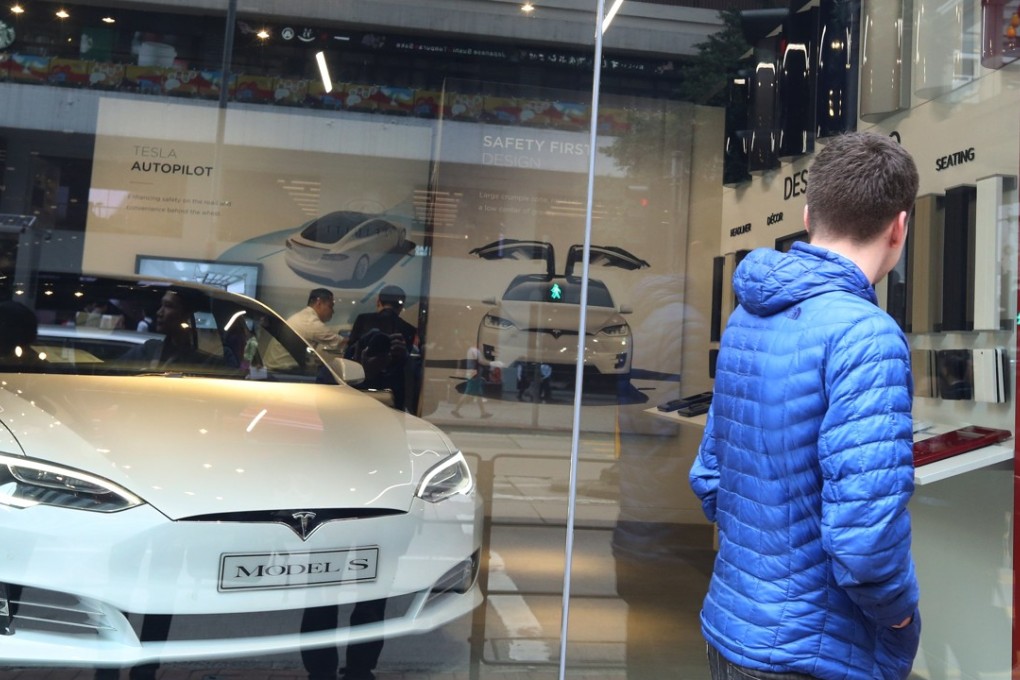Exclusive | Tesla to reduce Hong Kong operations if city refuses to promote electric cars
Source says Elon Musk-led firm asked Carrie Lam to rethink last year’s decision to slash tax break for electric car buyers, which stalled Tesla sales and caused overall demand for battery-powered cars to crash

US electric car maker Tesla is prepared to reduce its Hong Kong operations if the government fails to give residents incentives to buy battery-powered cars in its upcoming budget, a source close to the company told the Post.
Hong Kong’s electric car market comes to emergency stop after tax waiver scrapped, but does that really mean air pollution will be worse?
With the tax waiver capped at HK$97,500 from April 1 last year, sales of electric cars nosedived. Only 99 new cars were registered from April to December last year, compared with 2,078 in the same period the year before.
Sales at Tesla, which employs 200 people in the city, were hit hardest. It sold 32 cars from April to December, although 2,939 cars were snapped up in March, as buyers rushed to its showrooms after Financial Secretary Paul Chan Mo-po’s announcement that the waiver was ending in last year’s budget.
How the electric car became the future of transportation
“Scaling down Tesla’s operation in Hong Kong is a natural and logical consequence if the number of customers has dwindled prompted by a reduction of government incentives,” the source said. “Without government support, who is willing to invest in green technology?”